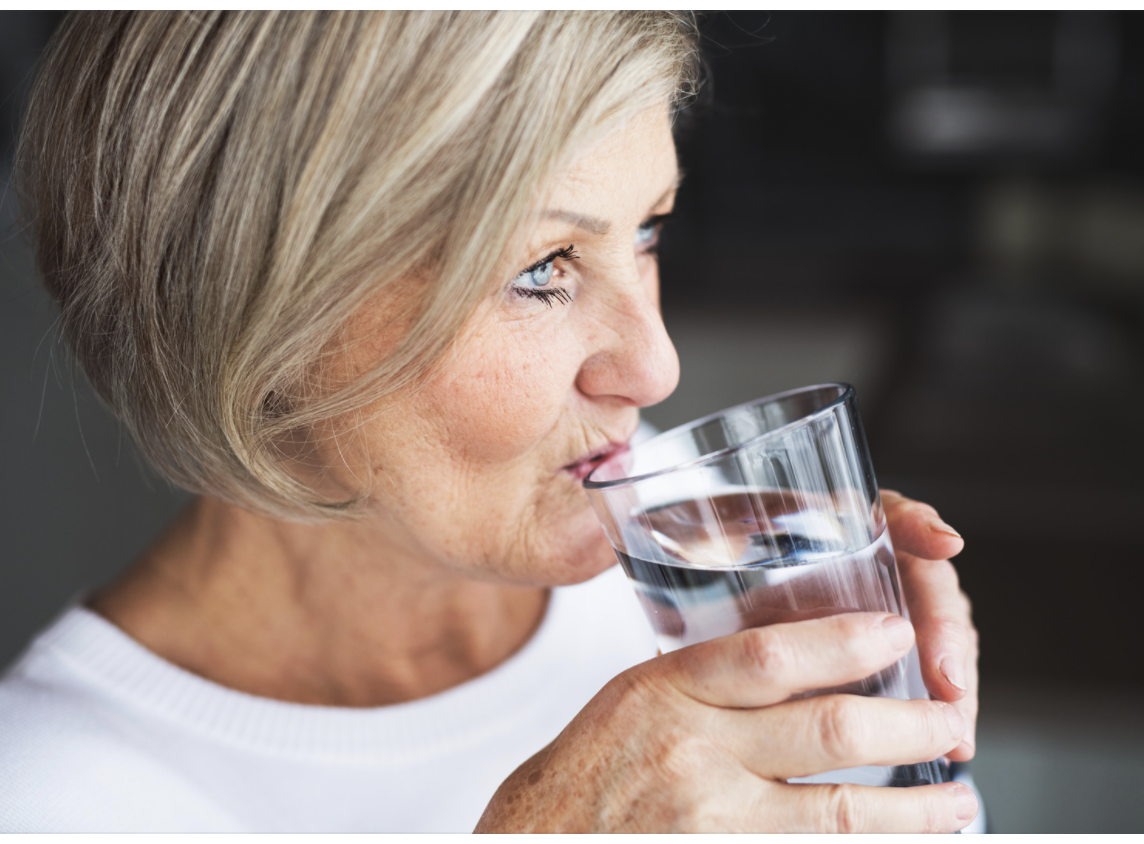Mouth Watering: How Much Water Should You Be Drinking?
May 12, 2021

It’s probably been drummed into your head: Just as we’ve been told (not very accurately) that we need 10,000 steps a day to stay healthy, we’ve also been advised to drink 8 glasses of water a day. But just as with the number of steps, the amount of water you need to drink each day isn’t really a hard and fast figure. While there are general recommendations for what adult water goals should be (about 15.5 cups (3.7 liters) of fluids a day for men and about 11.5 cups (2.7 liters) of fluids a day for women) the reality is that each person’s needs are different, depending upon your size and weight, your level of physical activity and the temperature where you live. Further, your daily fluid intake includes other beverages and foods (lots of foods have significant water content). So, a small sedentary older woman living in New England may need to drink less water than an active, larger older man living in Arizona. As with most things in life, context is important.
Keeping track of water intake each day is also important, especially as you get older. With up to 70% of our body being water, it’s critical to keep hydrated in order to ensure all systems are working optimally. Adequate water intake helps with breathing, digestion, lubricating joints, avoiding muscle cramps, removing waste and toxins, and even has a positive impact on your immune system. It can also help with temperature regulation, something critical as we know older adults are more susceptible to heat exhaustion and heatstroke. And older adults are especially susceptible to becoming dehydrated, as the thirst center in the brain is not always as sensitive to signaling a need to drink in older adults. In fact, a 2015 study of people aged 65 and older found that 37% of those who were admitted to an emergency room showed signs of dehydration. What are the signs of dehydration you should be on the lookout for? Everything from fatigue and brain fog to dizziness, muscle cramping and decreased (and darker) urine output.
Dr. Leslie Kernisan, from Better Health While Aging, has an updated primer on dehydration in older adults, with advice ranging from preventing and detecting to treating dehydration. She reports that geriatric experts recommend older adults consume at least 1.7 liters of fluid every 24 hours, which is approximately 7 cups- but remember, that’s not just drinking water but includes other fluids and food that has high water content. She makes clear that when we become dehydrated, we don’t have sufficient fluid in our cells and blood vessels, causing all sorts of problems. But if someone then takes a drink and “perks up” relatively quickly, it’s likely a minor issue. Only a blood test can really determine the level of dehydration and the potential need for more invasive treatments such as IV fluids. As other experts do, Dr. Kernisan recommends drinks with electrolytes if available (such as Pedialyte or sports drinks like Gatorade) if you suspect someone has mild dehydration.
And how to ensure you or a loved one take in sufficient fluids throughout the day? Beyond making sure you drink whenever you feel thirsty, there should always be regular and available offerings of water (and for the most part, sparkling water is an okay substitute, as long as you don’t offer the kind with lots of added sugars), recognize that fluids may be consumed over the course of hours, not all in one sitting, and check to see if there are reasons that water is not being consumed (for example, is there fear of incontinence?). Overall, the goal is to regularly keep drinking, keep an eye out for signs of dehydration before serious problems set in, and remember that your aging body may not be as efficient as it used to be in terms of alerting you to the need for water. So grab a glass and let that sink in!







